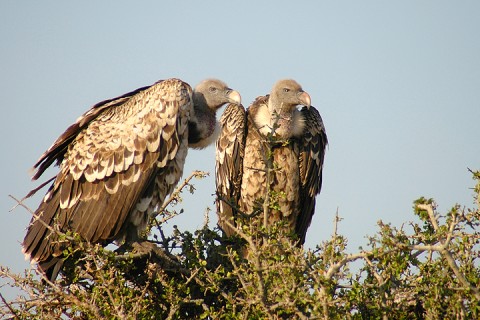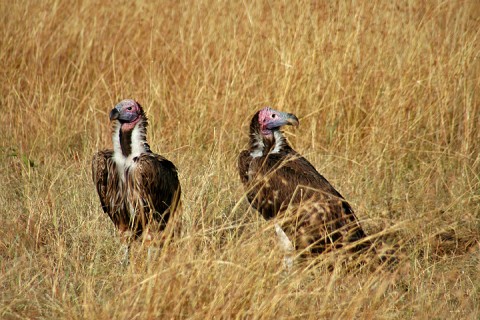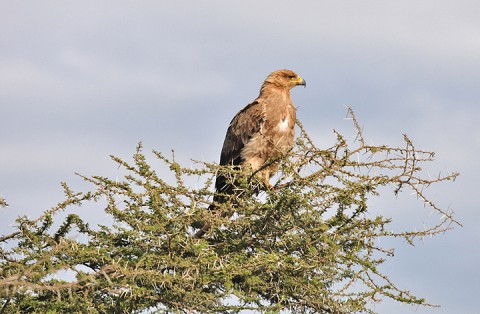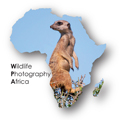The recent death of up to 600 vultures after feeding on a poisoned elephant carcass near Namibia’s Bwabwata National Park in July confirms that the indiscriminate use of poison is one of the major causes of the ongoing decline in vulture populations across most of Africa.

This is particularly evident in West Africa where an average decline of 42% in vulture numbers has been recorded over the past 30 years, with the Rueppell’s Vulture (Gyps rueppellii) declining by up to 85%.
It is now common practice for poachers killing elephants and other large mammals to lace carcasses with poison to kill vultures. Vultures congregating at these carcasses in large numbers are often used by law enforcement officials in many parts of Africa as an indication of poaching activity and as a way to pursue the offenders.

“By poisoning carcasses, poachers hope to eradicate vultures from an area where they operate and thereby escape detection,” says Leo Niskanen Technical Coordinator, IUCN Conservation Areas and Species Diversity Programme. “The fact that incidents such as these can be linked to the rampant poaching of elephants in Africa is a serious concern. Similar incidents have been recorded in Tanzania, Mozambique, Zimbabwe, Botswana and Zambia in recent years”.
Most of the birds killed in the recent incident are African White-backed Vultures (Gyps africanus), currently listed as Endangered on the IUCN Red List of Threatened Species™. Two dead tagged birds recovered from the incident were found 1000km away which shows the possible range of impact on vulture populations. The fact that vultures are currently mid-way through their breeding cycle further increases the impact, as many nestlings are not likely to survive without both parents feeding them.
The use of poison also negatively affects a number of other large raptors such as the Tawny Eagle (Aquila rapax) and the Bateleur (Terathopius ecaudatus), as well as lions, hyenas and jackals.

Africa’s vulture populations cannot sustain such losses and the current decline may have serious ecological and human health consequences in the longer term, say IUCN experts. The precipitous decline in three vulture species on the Indian sub-continent over the last 20 years has caused several problems, as there are fewer vultures to remove carcasses of dead animals. A proliferation of feral dogs and a substantial increase in diseases such as rabies have been documented and can be linked directly to this decline.
Many countries in Africa do not have appropriate legislation and other measures in place to control or prevent the indiscriminate use of poisons. Penalties in cases where those responsible are apprehended are often minimal and do not act as a deterrent to the perpetrators.
“We believe that crimes of this nature should have the same priority and be subject to similar penalties as those ascribed to incidents of poaching of the mega-fauna such as elephant and rhino,” says André Botha, Co-chair of the IUCN Species Survival Commission Vulture Specialist Group. “We urge countries in the southern Africa region to review their policies and implement appropriate measures that will help avoid similar incidents in the future.”
This article was sourced from the August 2013 e-bulletin of the IUCN Species Survival Commission
What is IUCN?
The International Union for Conservation of Nature is the world’s oldest and largest global environmental organization.

